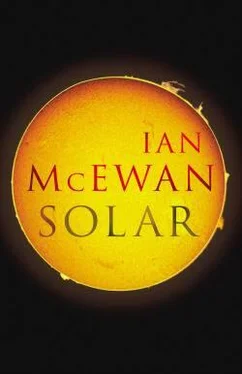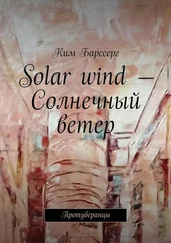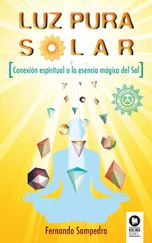Finally it had been hunger and the need for a drink that drove him from his cabin. After Pickett’s speech, Beard was not able to move out of his corner in time to sit next to Stella Polkinghorne and instead found himself wedged between the bulkhead and a famous ice sculptor from Mallorca called Jesus, an elderly man with a mournful face and curved yellowish-white moustache who smelled richly of cigars, and had a wheezing, honking sound in his voice like a teddy bear’s growl. After they had introduced themselves, Beard suggested that such a profession might be difficult to pursue in the Balearics. Jesus explained that back in the old days, the ice houses in the mountains kept the fishmongers of Palma supplied with giant blocks of ice in summer, and this was how his grandfather learned the skills he passed on to his son, who passed them on to his. Jesus had won many ice-carving competitions in cities around the world – a recent triumph was in Riyadh – and his speciality was penguins. He imported whisky when he was not carving, had four sons and five daughters, and had founded twenty years ago a school for blind children outside the port of Andratx. His wife and two of the sons ran his olive and vineyard estate in the Tramuntana, high on the sea cliffs fifteen kilometres south of Pollensa, not so far from the famous Cova de ses Bruixes, the Witches Cave. Beard’s pain was lifting, the painkillers had a strong euphoric effect. He had never enjoyed anything quite so good as the steak, French fries, green salad and red wine before him. And Jesus – he had never met anyone with this name, even though he knew it was common in Spain – seemed to him the most interesting man he had met in years.
In reply to the reciprocal question, Beard said he was a theoretical physicist. It always sounded like a lie. The sculptor paused, perhaps to rehearse mentally his English, then asked a surprising question. Señor Beard was to excuse an uneducated man’s naïvety and ignorance, but was the strange reality described by quantum mechanics a description of the actual world, or was it simply a system that happened to work? Infected by the Mallorcan’s courtly style, Beard complimented him on the question. He could not have phrased it better himself, for there was no better interrogation of quantum theory than this. It was a matter that had dominated years of Einstein’s life and led him to insist that the theory was correct but incomplete. Intuitively, he just could not accept that there was no reality without an observer, or that this reality was defined by the observer, as Bohr and the rest seemed to be saying. In Einstein’s memorable phrase, there was out there a ‘real factual situation’. ‘When a mouse observes,’ he had once asked, ‘does that change the state of the universe?’ Quantum mechanics seemed to imply that a measurement of the state of one particle could instantaneously determine the state of another, even if it was far away. But this was ‘spiritualistic’ in Einstein’s view, it was ‘spooky action at a distance’, for nothing could move faster than the speed of light. Beard the realist was sympathetic to Einstein’s extended, failing battle with the brilliant coterie of quantum pioneers, but it had to be faced: the experimental proof suggested that there really could be long-range spooky correlations, and that the texture of reality at the small and large scale really did defy common sense. Einstein was also convinced that the mathematics needed to describe the universe would ultimately be shown to be elegant and relatively simple. But even in his lifetime, two new fundamental forces had been found, and ever since, the view had been complicated by a messy array of new particles and antiparticles, as well as various imaginary dimensions and all kinds of untidy accommodations. But Beard still clung to the hope that as yet more was revealed, a genius would arise to propose an overarching theory binding all in a formulation of astounding beauty. After many years (this was his little joke as he placed a confiding hand on Jesus’s frail arm), he had finally given up hopes of being the mortal chosen to find this grail.
He said all this over the rising din of twenty climate-change artists settling down to the wine as the plates were cleared away. Jesus failed or refused to detect the self-irony and pronounced solemnly, turning his sad, drooping face to gaze about the crowded quarters, that it was a mistake to abandon hope at any stage of life. All his best penguins, the ones truest to life and most expressive of pure form, had been carved in the last two years, and recently he had started on polar bears, creatures much threatened by rising temperatures and, at one time, well beyond the reach of his artistic powers. In his humble view, it was important never to lose faith in the possibility of profound inner change. Clearly, a scientist like Señor Beard should strive for this theory, for this beauty, for what was life without the highest ambitions?
How could Beard confide to Jesus that he had done no serious science in years, and that he did not believe in profound inner change? Only slow inner and outer decay. He was returning the conversation to the safer ground of penguin as compared to polar-bear ice carving, but as he did so he felt his spirits sinking back. The painkillers were wearing off, the wine, this same wine, now tasted thin and sharp, the cheerfulness around him was reminding him that his marriage was over. He felt weary, and too cynical for the company. His liveliness in conversation was revealed as a fake, a product of shock, drugs and drink.
He brought the conversation to an end and said goodnight to Jesus and, muttering apologies, squeezed along the packed rows to the aisle. All the conversations he passed through were of art and climate change. At the next table a choreographer, a woman he had not seen before, sleek and beautiful and brimming with goodwill, was describing through a French accent a geometric dance she had planned to take place on the ice. He could not stand it, the optimism was crushing him. Everyone but Beard was worried about global warming and was merry, and he was uniquely morose. He cared only for darkness and silence.
He lay a long while on his bunk in the airless cabin, kept awake by the throbbing in his groin – his heartbeat seemed to have migrated down there – and listening to voices and laughter, and wondering if his misanthropy would last all week. The helicopter idea he now saw was absurd. Coming away from his life in remote Belsize Park to this lifeless wilderness had confronted him with the idiocy of his existence. Patrice, Tarpin, the Centre and all the other pseudo-work he did to mask his irrelevance. What was life without the highest ambitions? The answer was exactly this, another night of unmemorable insomnia.
Two hours later he was on the edge of sleep when there came the sound of the guitar being tuned and he groaned and turned angrily on his side. But it was not strumming and singing he heard through the woodwork, but a tenderly played melody that sounded Spanish, reflective, with a touch of lightness and precision, like something of Mozart’s. In the morning he would learn that it was a study by Fernando Sor. Lying in total darkness on his narrow bed he did not doubt that it was Jesus who played, as if to him, and it was to this melancholy air that at last he fell asleep.
* * *
It was late in the morning, the sun was up and shining heroically at a slant across the brilliant fjord, while Beard moved effortfully through the dimness of the boot room, trying to find his stuff. He was standing opposite peg number eighteen, on which, the day before, he knew this for a fact, he had hung his snowmobile suit. Directly below the peg was a wire basket where he had stowed his goggles, helmet and smaller items, and below that, under a slatted bench, was the compartment in which he had placed his boots. Even from down here, directly beneath the wheelhouse, he could hear the roar of many snowmobiles – getting them started in the morning was, apparently, an ordeal. A party of six, plus Jan armed with a rifle, was about to set off up the fjord to investigate the glacier. Five and the guide were already out on the ice, stamping their feet and flapping their arms to keep warm, and Beard as always was last. Someone had taken his gear, or some of it. His suit was not on its peg, his wire basket had been shoved along to position nineteen, only his boots – if they were his boots – were in the correct position. His undesirable cracked goggles were lying on the floor.
Читать дальше












